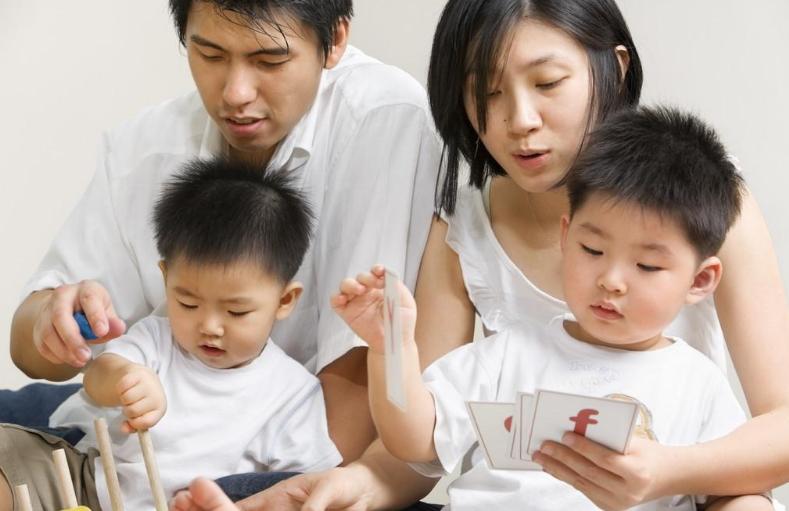
Emotionally Stable Parents Are the Greatest Gift for a Child’s Growth
Parenting is one of the most rewarding yet challenging roles in life. Amid the daily chaos—work deadlines, household chores, and parenting duties—it’s easy to feel overwhelmed. But here’s something profound yet simple: A parent’s emotional stability is one of the most powerful influences on a child’s development.
- Why Emotional Stability Matters
A parent’s emotional state acts like a mirror—children reflect what they see. Studies show that kids raised by emotionally balanced parents tend to:
- Develop better self-regulation (they learn how to handle frustration and stress).
- Have stronger relationships (they model healthy communication).
- Perform better academically (stress at home affects focus and memory).
- Experience lower anxiety and depression (a calm home is a safe haven).
When parents remain steady, children feel secure, knowing that no matter what happens, they have a stable foundation.
- The Ripple Effect of Parental Reactions
Imagine a child spills milk at the breakfast table. Two possible parental reactions:
- Reaction 1: “Ugh, again? You’re so careless!” (angry tone, tense body language).
- Reaction 2: “Oops, no big deal. Let’s clean it up together.” (calm, problem-solving approach).
The first response may make the child feel ashamed or fearful of mistakes. The second teaches resilience and responsibility.
Small moments like these shape a child’s self-worth and coping mechanisms.
- How to Cultivate Emotional Stability
Nobody is perfectly calm all the time—parenting is messy! But these strategies can help:
A. Self-Awareness & Pausing
- Notice your triggers (e.g., tantrums, backtalk, messes).
- Before reacting, take a deep breath or count to five.
- Ask yourself: “Will this matter in five years?”
B. Healthy Stress Outlets
- Exercise, journaling, or talking to a friend can prevent emotional buildup.
- Avoid venting frustration at your child—model healthy coping instead.
C. Repair After Mistakes
If you lose your cool:
- Acknowledge it: “I was frustrated earlier and shouldn’t have yelled.”
- Reconnect: Hug, laugh, or spend one-on-one time. This teaches accountability and repair—an invaluable life lesson.
- The Power of a Predictable Routine
Children thrive on consistency. When parents provide structure—without rigidity—kids feel safe.
- Set clear, loving boundaries (e.g., “We don’t speak hurtfully, but I’m here to listen.”).
- Maintain routines (bedtime, meals) to reduce anxiety.
- Stay consistent with discipline (random punishments create confusion).
Predictability = emotional safety.
- Modeling Emotional Intelligence
Kids learn emotions by watching us. Show them how to:
- Name feelings: “I’m feeling stressed because of work, but I’ll take a walk to calm down.”
- Problem-solve: “I’m upset the vase broke, but let’s figure out how to fix it.”
- Practice empathy: “You seem sad. Want to talk about it?”
When children see emotions managed healthily, they learn to do the same.
- Avoiding Emotional Dumping
Parents carry heavy burdens, but oversharing adult worries (finances, marital issues) can overwhelm kids.
- Instead of: “I’m so stressed about money; I don’t know how we’ll pay bills.”
- Try: “Grown-ups sometimes have big worries, but we’re handling it. You’re safe.”
Kids need to feel protected, not burdened by adult problems.
- The Long-Term Impact
Children of emotionally stable parents grow up with:
✔ Stronger self-esteem (they don’t fear making mistakes).
✔ Better conflict resolution skills (they’ve seen calm discussions).
✔ Healthier future relationships (they know what stability feels like).
✔ Resilience (they’ve learned that storms pass).
This isn’t about perfection—it’s about showing up with patience and love, day after day.
Final Thoughts
Parenting with emotional stability isn’t about never feeling angry or tired. It’s about recognizing our emotions, managing them, and creating a warm, secure space for our children to grow.
The greatest gift we can give our kids isn’t a perfect life—it’s the confidence that they are loved, safe, and capable of handling whatever comes their way.